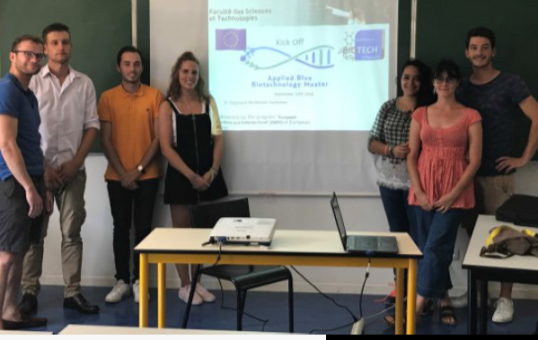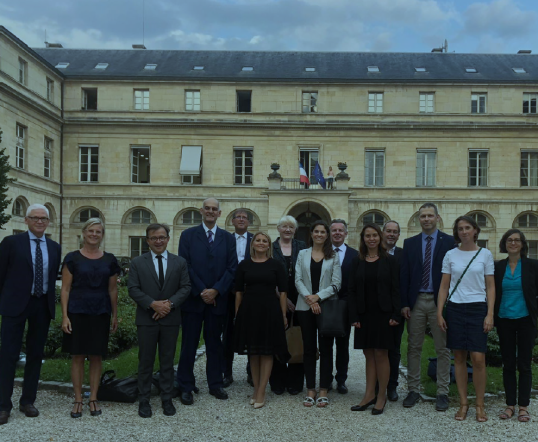The European Green Deal envisages a central role for the blue economy “in alleviating the multiple demands on the EU’s land resources and tackling climate change. The sector can contribute by improving the use of aquatic and marine resources and by promoting the production and use of new sources of protein that can relieve pressure on agricultural land”.
For this to happen, the blue economy needs a large pool of highly-qualified and skilled professionals. Yet today, many blue economy sectors have difficulties finding the right people. Only by developing targeted educational pathways, it will be possible to address the skill mismatch!
In 2015, long before the Green Deal, the Biotechnology Department at La Rochelle University in France came to very similar conclusions and proposed a higher-education course dealing with blue biotechnology. Then, in 2016 an EMFF-funded blue career call was out, and the University submitted a proposal with the Catholic University of Valencia, the University of Stirling, CIIMAR, the Conference of Peripheral and Maritime Regions, as well as two industry partners, Valbiotis and Xanthella.
And that’s how the “Blue Biotechnology Master for a Blue Career” (BBMBC) was born. The project developed an entirely new curriculum for postgraduates to empower them with blue biotechnology skills. Combining traditional lectures with work-linked training, the master strengthened the link between academia and industry. The industry partners took an active role in designing and delivering the courses, and hosted students for their on-the-job training.
The master welcomed 40 students – most of them still working in marine biotech companies. Further, 15 more students attended the “Spanish version” of the same master, organised by the Catholic University of Valencia.
"We knew from the beginning that we had to find funds to go further. We wanted to convert our project and our master II in a complete two-year master entirely focused on marine biotechnology, since job opportunities are increasing and labs and industries need skilled students".
Stéphanie Bordenave-Juchereau
BBMBC ran from January 2017 to December 2018, but its legacy is still very much alive. During the final meeting, La Rochelle University invited some of the BBMBC teachers to participate in a European University Alliance project, EU CONEXUS (now EU CONEXUS Plus), which spun off a new Joint Master Programme in Marine Biotechnology, led by the Catholic University of Valencia.
BBMBC acted as a catalyst: thanks to the knowledge gained through it, La Rochelle University took part in MarENet, which aimed to bridge the gap between training offer and industry needs in the blue economy. While MarENet ended in October 2021, its stakeholder network still operates under the brand “Atlantic Maritime Knowledge Centre MarENet”, maintaining a catalogue of training opportunities in the Atlantic sea basin.
La Rochelle University also took part in several events organised by the Atlantic Arc Commission and this helped matching skill gaps with the needs of the private sector. Some of these events offered project partners the opportunity to liaise with similar EU projects, such as MATES and MENTOR, thus capitalising on the BBMBC experience.
The essence of this amazing journey is perfectly captured in the words of Stéphanie Bordenave-Juchereau, BBMBC project coordinator:
“We created a strong European marine biotech dream team of teachers and researchers ready to promote blue biotechnology”.


